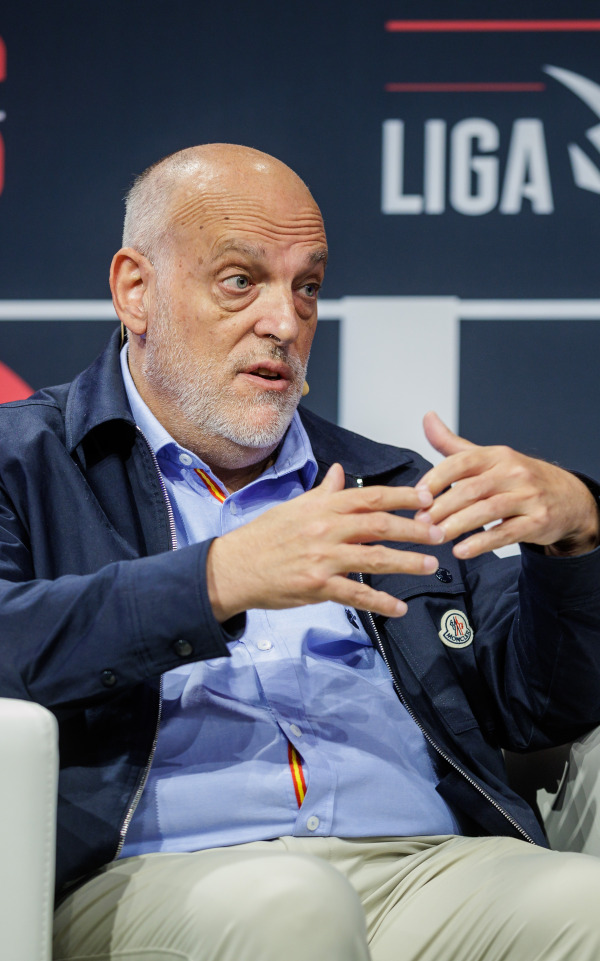The LaLiga president kicked off the second day of the Thinking Football Summit with a talk focused on the centralization of media rights and combating piracy.
Returning to the TFS stage at the Thinking Football Summit, Javier Tebas, president of LaLiga, spoke with Pedro Pinto about various topics, with a particular emphasis on the centralization of media rights. The leader of Spain's professional competitions argued that centralization is fundamental to the development of leagues, especially in terms of club growth.
“Football, and almost all major sports, have centralized media rights within the organization that manages the competition. There must be a reason for that. The Portuguese will not be better off by having individual sales of these rights when the rest of the world doesn't. Above all, it's about the efficiency that comes with centralization. We have a better product, with more quality and higher revenues for the clubs, not just those in the first league. With good organization, as is the case with LaLiga, the product is better and more evenly distributed. This is a business where everyone wants to win. The goal is for all of us to win,” he explained, before discussing the process currently underway in Portugal, and how similar hurdles were overcome in Spain.
“In Portugal, there’s a law stating that the rights must be centralized by 2028. This creates a window of time, which is very important and didn’t happen in Spain or Italy, to establish how we’re going to divide the audiovisual rights among the clubs. That’s the biggest issue. In Spain, when we started talking about this, no one wanted it. I spent almost a year and a half negotiating with the government, and clubs kept asking how we would divide the revenues. I always told them not to worry because they would be ‘uncomfortably satisfied.’ Not comfortable, but satisfied. This meant the distribution wouldn’t be bad—maybe they’d want more, but it wouldn’t be bad. But it's necessary because it’s very difficult to convince all the clubs about the distribution. One club thinks it’s better than the other, which is normal,” stated the LaLiga leader.
Alongside the topic of centralization, the conversation shifted to piracy, which Javier Tebas sees as one of the main problems in the football industry.
“The issue with piracy is no longer about growth, but about not losing. We are in a time where, if we don’t know how to fight piracy effectively, we won’t grow. Audiovisual rights have fewer subscribers because people watch through the web or via an IP. When we renew contracts, they’ll pay less. It’s a bigger problem for the rights holders than for the operators. In the short term, yes, it affects the operators because they bought the rights, but once the contract ends, the problem becomes ours. If piracy leads to a 10% decrease, they’ll want to pay 10% less,” he stressed, suggesting possible solutions.
“Technologically, the big companies and hosting providers can solve this, but they don’t want to. Either we confront all actors involved in piracy head-on, or we won’t solve the problem. Until we recognize the full range of actors who are stealing from us, there won’t be a solution. Piracy, just at the start of this season, increased by 20%. In Spain, one in every three people watches football for free, and in Portugal, it’s one in two,” he said.

